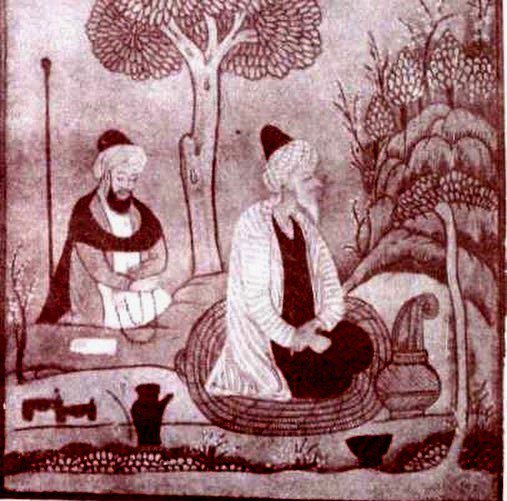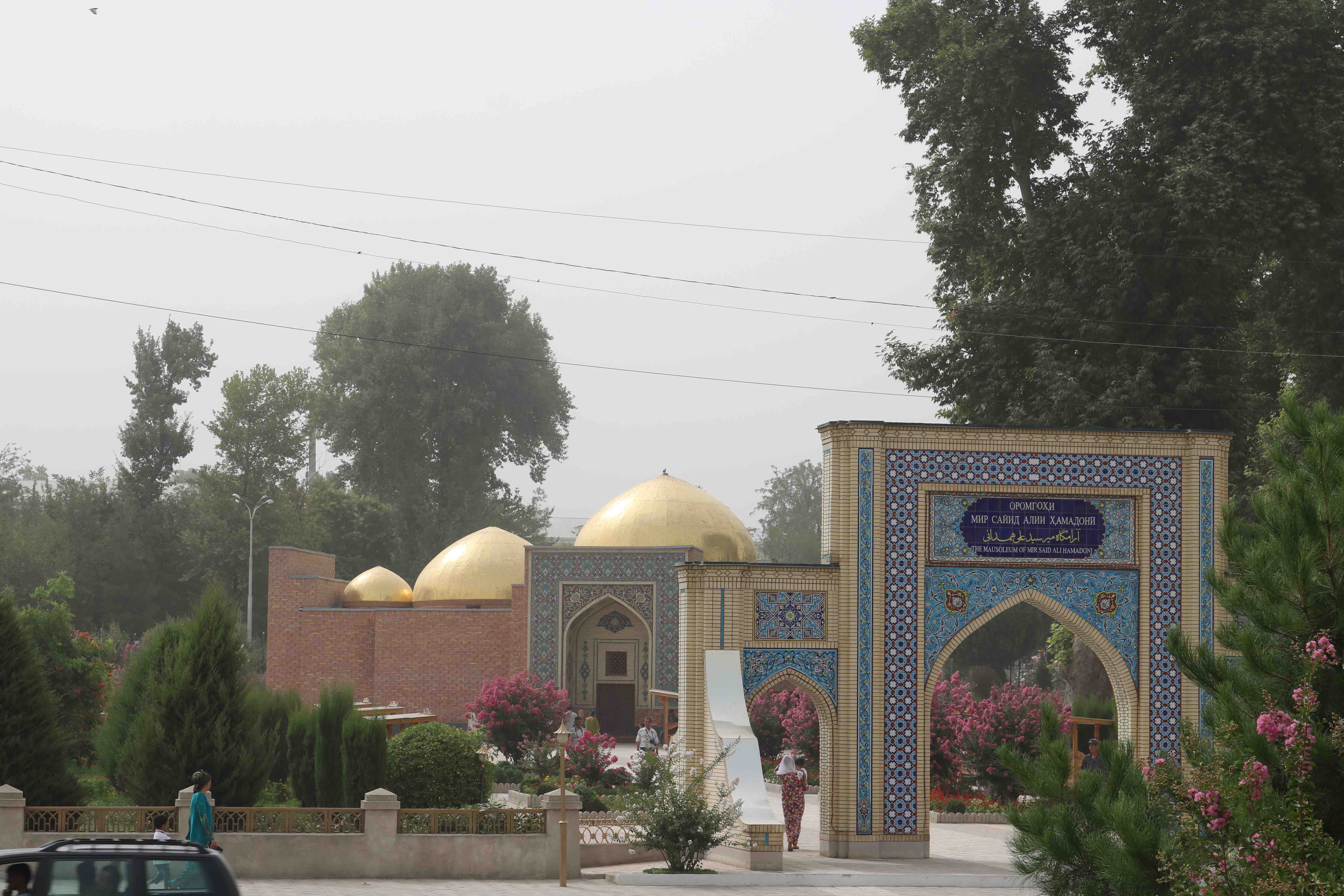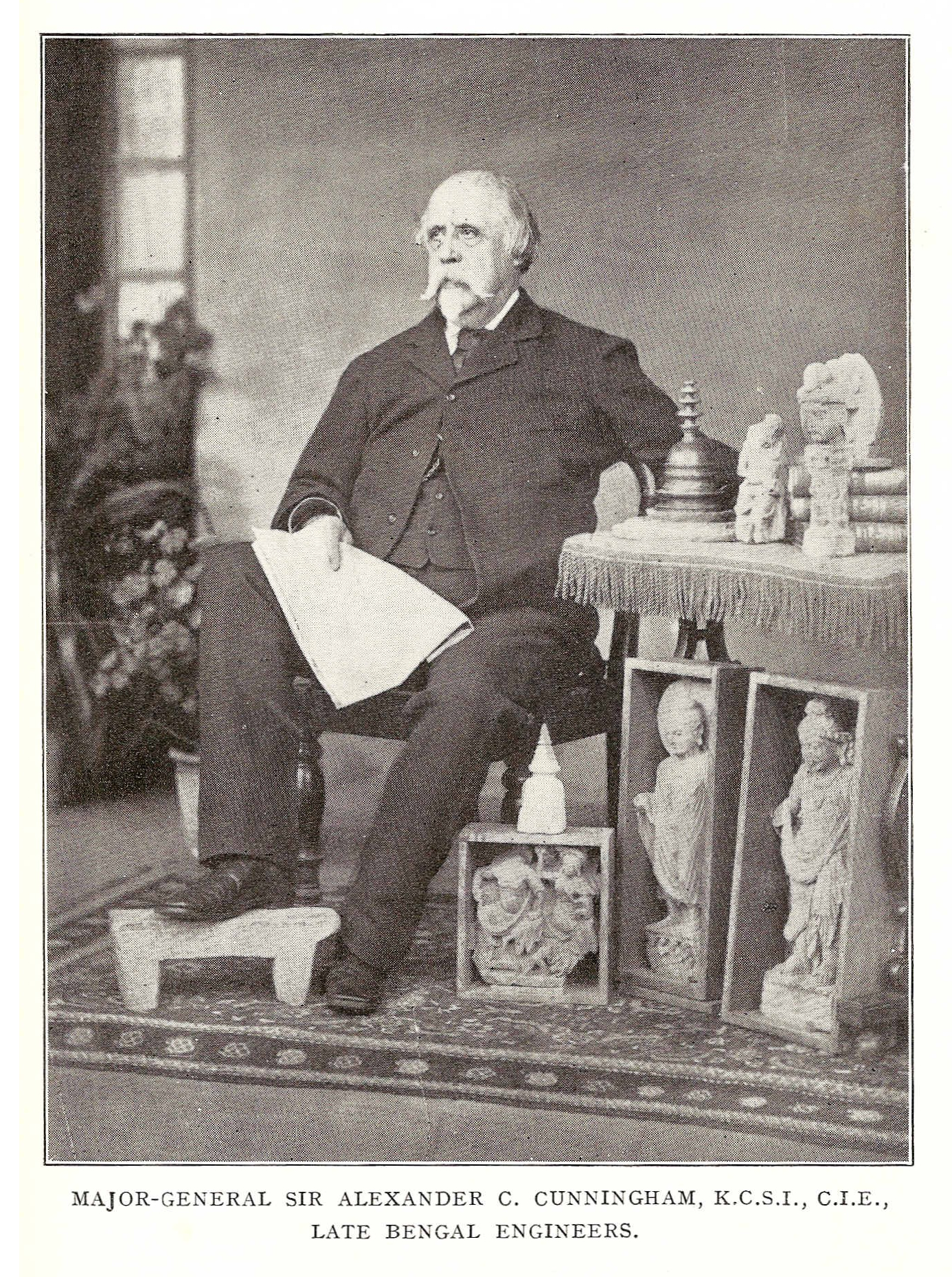|
Bulbul Shah
Syed Sharf-Ud-Din Abdul Rehman Shah (Persian:سيٌد شرف الدٌين عبد الرٌَحمان شاه) popularly known as Bulbul Shah (Persian: بلبل شاه ) was a 14th-century Turkistani Sufi of Suhrawardi order. He introduced first Islam to Kashmir by inviting and converting the King of Kashmir, Rinchan Shah (''later named to Sadruddin Shah'') to Islam. He was from a Suhrawardi order and his mentor was Mir Syed Niymatullah who ordered him to on take Islamic missionary movement to Kashmir. Shah was mentioned by "Baba Dawood Mishkati" in ''Asrar-ul- Abrar'' and Rafi-ud- Din ''Nawadir-ul- Akhbar.'' Shrine A shrine is dedicated to his burial place on the Jhelum river which was actually a Langar, a community kitchen. In 2011 the Archeological Survey of India rejected the proposal to make it a National Monument even after the High Court ordered the Survey to accept it. Petitioner GA Lone filed a contempt petition against the official respondents. The High Court directed ... [...More Info...] [...Related Items...] OR: [Wikipedia] [Google] [Baidu] |
Islam
Islam (; ar, ۘالِإسلَام, , ) is an Abrahamic religions, Abrahamic Monotheism#Islam, monotheistic religion centred primarily around the Quran, a religious text considered by Muslims to be the direct word of God in Islam, God (or ''Allah'') as it was revealed to Muhammad, the Muhammad in Islam, main and final Islamic prophet.Peters, F. E. 2009. "Allāh." In , edited by J. L. Esposito. Oxford: Oxford University Press. . (See alsoquick reference) "[T]he Muslims' understanding of Allāh is based...on the Qurʿān's public witness. Allāh is Unique, the Creator, Sovereign, and Judge of mankind. It is Allāh who directs the universe through his direct action on nature and who has guided human history through his prophets, Abraham, with whom he made his covenant, Moses/Moosa, Jesus/Eesa, and Muḥammad, through all of whom he founded his chosen communities, the 'Peoples of the Book.'" It is the Major religious groups, world's second-largest religion behind Christianity, w ... [...More Info...] [...Related Items...] OR: [Wikipedia] [Google] [Baidu] |
Jammu And Kashmir (state)
Jammu and Kashmir was a region formerly administered by India as a state from 1952 to 2019, constituting the southern and southeastern portion of the larger Kashmir region, which has been the subject of a dispute between India, Pakistan and China since the mid-20th century. (subscription required) Quote: "Jammu and Kashmir, state of India, located in the northern part of the Indian subcontinent in the vicinity of the Karakoram and westernmost Himalayan mountain ranges. The state is part of the larger region of Kashmir, which has been the subject of dispute between India, Pakistan, and China since the partition of the subcontinent in 1947." Quote: "Jammu and Kashmir: Territory in northwestern India, subject to a dispute between India and Pakistan. It has borders with Pakistan and China." The underlying region of this state were parts of the former princely state of Jammu and Kashmir, whose western districts, now known as Azad Kashmir, and northern territories, now known as Gi ... [...More Info...] [...Related Items...] OR: [Wikipedia] [Google] [Baidu] |
History Of Kashmir
The history of Kashmir is intertwined with the history of the broader Indian subcontinent and the surrounding regions, comprising the areas of Central Asia, South Asia and East Asia. Historically, Kashmir referred to the Kashmir Valley. Today, it denotes a larger area that includes the Indian-administered union territories of Jammu and Kashmir (which consists of Jammu and the Kashmir Valley) and Ladakh, the Pakistan-administered territories of Azad Kashmir and Gilgit-Baltistan, and the Chinese-administered regions of Aksai Chin and the Trans-Karakoram Tract. In the first half of the 1st millennium, the Kashmir region became an important centre of Hinduism and later—under the Mauryas and Kushanas—of Buddhism. Later in the ninth century, during the rule of the Karkota Dynasty, a native tradition of Shaivism arose. It flourished in the seven centuries of Hindu rule, continuing under the Utpala and the Lohara dynasties, ending in mid-14th century. Islamization in Kashmir be ... [...More Info...] [...Related Items...] OR: [Wikipedia] [Google] [Baidu] |
Muslim Missionaries
Muslims ( ar, المسلمون, , ) are people who adhere to Islam, a monotheistic religion belonging to the Abrahamic tradition. They consider the Quran, the foundational religious text of Islam, to be the verbatim word of the God of Abraham (or '' Allah'') as it was revealed to Muhammad, the main Islamic prophet. The majority of Muslims also follow the teachings and practices of Muhammad ('' sunnah'') as recorded in traditional accounts (''hadith''). With an estimated population of almost 1.9 billion followers as of 2020 year estimation, Muslims comprise more than 24.9% of the world's total population. In descending order, the percentage of people who identify as Muslims on each continental landmass stands at: 45% of Africa, 25% of Asia and Oceania (collectively), 6% of Europe, and 1% of the Americas. Additionally, in subdivided geographical regions, the figure stands at: 91% of the Middle East–North Africa, 90% of Central Asia, 65% of the Caucasus, 42% of Southeast Asi ... [...More Info...] [...Related Items...] OR: [Wikipedia] [Google] [Baidu] |
Turkish Sufis
Turkish may refer to: *a Turkic language spoken by the Turks * of or about Turkey ** Turkish language *** Turkish alphabet ** Turkish people, a Turkic ethnic group and nation *** Turkish citizen, a citizen of Turkey *** Turkish communities and minorities in the former Ottoman Empire * Ottoman Empire (Ottoman Turkey), 1299–1922, previously sometimes known as the Turkish Empire ** Ottoman Turkish, the Turkish language used in the Ottoman Empire * Turkish Airlines, an airline * Turkish music (style), a musical style of European composers of the Classical music era See also * * * Turk (other) * Turki (other) * Turkic (other) * Turkey (other) * Turkiye (other) * Turkish Bath (other) * Turkish population, the number of ethnic Turkish people in the world * Culture of Turkey * History of Turkey ** History of the Republic of Turkey The Republic of Turkey was created after the overthrow of Sultan Mehmet VI Vahdettin by ... [...More Info...] [...Related Items...] OR: [Wikipedia] [Google] [Baidu] |
Baba Naseeb-ud-Din Ghazi
Nassar-Ud-Din, popularly known as Baba Naseeb-ud-Din Ghazi ( ks, بابا نَصیٖب الدیٖن غٲزی), was a Sufi teacher, follower of Suhrawardiyya order poet and writer born in Srinagar who traveled extensively. He is also called by the title of "Abul-Fuqra" (father of all faqirs) and he was the khalifa of renowned sufi saint Baba Dawood-i-Khaki. Early life He was from Rawalpendi and came with his father Mir Hassan Razi to Kashmir. At the age of 7 years he went to Sultan ul Arifeen Sheikh Hamza Makhdoom for attaining spiritual teachings and became his disciple, later Makhdoom handed over Baba Naseeb to Sheikh Baba Dawood Khaki. Career Baba Naseeb was an able Persian and Kashmiri writer. During preaching of Islam Baba Naseeb Ud Din Ghazi visited most in-accessible areas that time which include, Tibet, Iskardu, Karnah, Dardistan, Baltistan, Kishtwar, Doda, Baderwah, Poonch, Rajouri, Nowshera, Budgam, (Chewdara) etc. He constructed 1200 Mosques and Bathrooms, Musa ... [...More Info...] [...Related Items...] OR: [Wikipedia] [Google] [Baidu] |
Hamza Makhdoom
Hamza Makhdoom, popularly known as Makhdoom Sahib (c. 1494 – c. 1576), was a Sufi mystic living in Kashmir. He is sometimes referred to as Mehboob-ul-Alam (literally, "beloved of the world") and Sultan-ul-Aarifeen (literally, "king among those who know God"). Early life Hamza Makhdoom was born in the village of Tujjar near Sopore in Baramulla district. His father was called Baba Usman and came from a Chandravanshi Rajput family. According to tradition, teenage Hamza Makhdoom studied in the Shamsi Chak monastery for a year, and later studied jurisprudence, tradition, philosophy, logics, ethics and mysticism in a madrasa founded by Ismail Kubrawi. Teachings A prolific scholar and spiritual preacher, Hamza Makhdoom adhered to the tradition of Jalaluddin Bukhari. He directed his teachings specifically to the followers of Islam, and under his influence a part of Kashmir's population trully followed the Hanafi jurisprudence . He was staunch follower of Shariah and Sunnah. Dea ... [...More Info...] [...Related Items...] OR: [Wikipedia] [Google] [Baidu] |
Nund Rishi
Nund Rishi ( c. 1377 – c. 1438 AD; sometimes spelled Nund Reshi), also known as Sheikh Noor-ud-Din Noorani, Sheikh-Ul-Alam (spritual guide of the world) and by the title Alamdar-e-Kashmir ("Flag Bearer of Kashmir"), was a Kashmiri Sufi saint, mystic, poet and Islamic preacher.). And Sheikh ul-Alam ( ur, ) among the Muslims and as Nund Laal among the Hindus. Nund Rishi was among the founders of the Rishi order, a Sufi tradition of the region. He influenced many spiritual teachers and saints, including Hamza Makhdoom, Resh Mir Sàeb, and Shamas Faqir. Early life Noor-ud-Din was born in AD 1377 in hi-jogi poraor aimohvillage in Kulgam district to Salar Sanz and Sadra, also called Sadra Moji or Sadra Deddi.Soqte:School Of Orthoepy Quran And Theology::Kashmir [Baidu] |
Mir Sayyid Ali Hamadani
Mir Sayyid Ali Hamadani ( fa, میر سید علی همدانی; CE) was a Persian scholar, poet and a Sufi Muslim saint of the Kubrawiya order. He was born in Hamadan, Iran and preached Islam in Central Asia and Kashmir as he travelled to practice Sufism. He died in Kashmir and was buried in Khatlan, Tajikistan in 1384 CE, aged 71–72. Hamadani was also addressed honorifically throughout his life as the ''Shāh-e-Hamadān'' ("King of Hamadan"), ''Amīr-i Kabīr'' ("the Great Commander"), and ''Ali Sani'' ("second Ali"). Early life The title "Sayyid" indicates that he was a descendant of the Islamic prophet Muhammad, possibly from both sides of his family. Hamadani spent his early years under the tutelage of Ala ud-Daula Simnani, a famous Kubrawiya saint from Semnan, Iran. Despite his teacher's opposition to Ibn Arabi's explication of the ''wahdat al-wujud'' ("unity of existence"), Hamadani wrote ''Risala-i-Wujudiyya'', a tract in defense of that doctrine, as well as two ... [...More Info...] [...Related Items...] OR: [Wikipedia] [Google] [Baidu] |
Abdul Qadir Gilani
ʿAbdul Qādir Gīlānī, ( ar, عبدالقادر الجيلاني, ʿAbd al-Qādir al-Jīlānī; fa, ) known by admirers as Muḥyī l-Dīn Abū Muḥammad b. Abū Sāliḥ ʿAbd al-Qādir al-Jīlānī al-Baḡdādī al-Ḥasanī al-Ḥusaynī (March 23, 1078February 21, 1166), was a Sunni Muslim preacher, ascetic, mystic, jurist, and theologian belonging to the Hanbali school, and the eponymous founder of the Qadiriyya tariqa (Sufi order) of Sufism.W. Braune, ''Abd al-Kadir al-Djilani, The Encyclopaedia of Islam'', Vol. I, ed. H.A.R Gibb, J.H.Kramers, E. Levi-Provencal, J. Schacht, (Brill, 1986), 69;"authorities are unanimous in stating that he was a Persian from Nayf (Nif) in Djilan, south of the Caspian Sea."John Renard, The A to Z of Sufism. p 142. Juan Eduardo Campo, Encyclopedia of Islam, p. 288. The Qadiriyya tariqa is named after him. He was born on March 23, 1078 (1 Ramdhan 470 AH) in the town of Na'if, Rezvanshahr in Gilan, Iran, and died on February 21, 11 ... [...More Info...] [...Related Items...] OR: [Wikipedia] [Google] [Baidu] |
Archaeological Survey Of India
The Archaeological Survey of India (ASI) is an Indian government agency that is responsible for archaeological research and the conservation and preservation of cultural historical monuments in the country. It was founded in 1861 by Alexander Cunningham who also became its first Director-General. History ASI was founded in 1861 by Alexander Cunningham who also became its first Director-General. The first systematic research into the subcontinent's history was conducted by the Asiatic Society, which was founded by the British Indologist William Jones on 15 January 1784. Based in Calcutta, the society promoted the study of ancient Sanskrit and Persian texts and published an annual journal titled ''Asiatic Researches''. Notable among its early members was Charles Wilkins who published the first English translation of the '' Bhagavad Gita'' in 1785 with the patronage of the then Governor-General of Bengal, Warren Hastings. However, the most important of the society's achieveme ... [...More Info...] [...Related Items...] OR: [Wikipedia] [Google] [Baidu] |
Turkestan
Turkestan, also spelled Turkistan ( fa, ترکستان, Torkestân, lit=Land of the Turks), is a historical region in Central Asia corresponding to the regions of Transoxiana and Xinjiang. Overview Known as Turan to the Persians, western Turkestan has also been known historically as Sogdia, "Ma wara'u'n-nahr" (by its Arab conquerors), and Transoxiana by western travelers. The latter two names refer to its position beyond the River Oxus when approached from the south, emphasizing Turkestan's long-standing relationship with Iran, the Persian Empires, and the Umayyad and Abbasid Caliphates. Oghuz Turks (also known as Turkmens), Kyrgyzs, Uzbeks, Kazakhs, Khazars, Uyghurs and Hazaras are some of the Turkic inhabitants of the region who, as history progressed, have spread further into Eurasia forming such Turkic nations as Turkey, and subnational regions like Tatarstan in Russia and Crimea in Ukraine. Tajiks and Russians form sizable non-Turkic minorities. It is subdivided into A ... [...More Info...] [...Related Items...] OR: [Wikipedia] [Google] [Baidu] |
.jpg)

.jpg)



.jpg)
